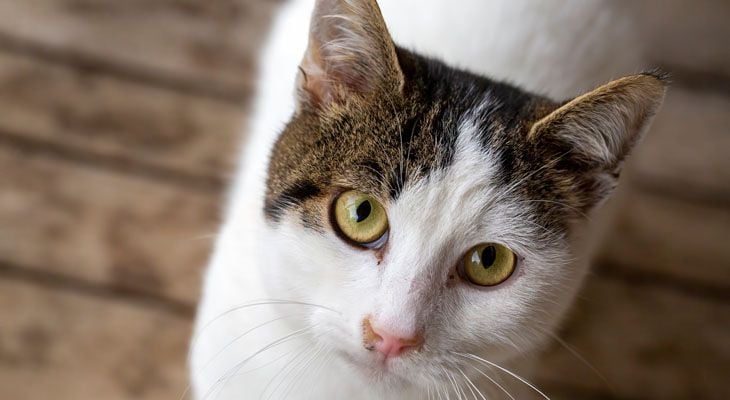
Pneumonia is a condition in which the lungs and airways are inflamed, making it hard for your cat to breathe or get enough oxygen in his or her blood. A viral infection in your cat’s lower respiratory tract is the most common cause of pneumonia. However, a cat can catch pneumonia several different ways.
Clinical Signs
Your cat may have pneumonia if you see these symptoms:
- Lethargy
- Deep, persistent cough
- Mucous membranes turning blue
- Elevated body temperature
- Difficulty breathing
- Blowing through the lips
- Appetite loss
Bacterial Pneumonia
A bacterial infection can also cause pneumonia. Many different types of bacteria can be responsible, including Chlamydiae. Cells and fluids accumulate in the lungs and airways and in the part of the airways called the alveoli, where oxygen is exchanged for carbon monoxide. Cats with bacterial pneumonia are vulnerable to the secondary effects of sepsis and hypoxemia. Sepsis means that the poison from pus-forming bacteria has entered the cat’s bloodstream. Hypoxemia signifies a dangerously low oxygen level in the blood.
Cats with metabolic disorders and those who regularly regurgitate may be at heightened risk for bacterial pneumonia.
Aspiration Pneumonia
If your cat inhales foreign material, he or she may develop aspiration pneumonia. The severity varies, depending on the material inhaled and how it ends up being distributed through the lungs. Breathing in vomit or swallowing a liquid medication wrong can both lead to aspiration pneumonia. Cats with cleft palates or those who are anesthetized or comatose face a higher risk of developing this disorder.
Aspiration pneumonia is associated with an elevated heart rate, fever, sweet-smelling breath and green or reddish-brown nasal discharge. This type of pneumonia is especially dangerous. Even if the cat recovers, he or she might develop a lung abscess.
Fungal Pneumonia
Fungal pneumonia is especially likely to attack animals with poor immune systems, but healthy cats can also develop this disorder. They probably catch this type of pneumonia from inhaling spores in soil. The fungus Cryptococcus invades the cat’s nasal cavity, inflaming the sinus lining and causing a moist, short cough. Over time, the cat with fungal pneumonia loses weight and gets progressively weaker. The airways may compress as lymph nodes swell, making breathing difficult. The veterinarian may treat this type of pneumonia with antifungal drugs.
Treatment
In general, veterinarians recommend a dry and warm environment for cats recovering from pneumonia. The cat may need oxygen therapy, antibiotics or other drugs. Your vet may want to monitor your cat even after recovery, using such tools as regularly-scheduled chest X-rays, to check for recurrence.
If you have any concerns about your cat’s breathing, call our office. We will do what it takes to help your cat breathe easier.
